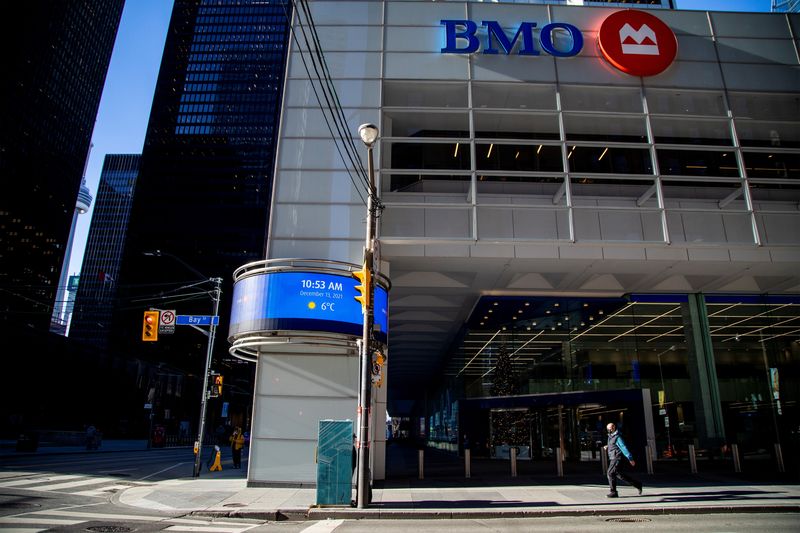By Nivedita Balu
OTTAWA/TORONTO (Reuters) -Canada's financial regulator on Friday said it was maintaining the amount of capital the country's biggest lenders must hold, saying its previous actions had made the big six banks resilient.
The Office of the Superintendent of Financial Institutions said (OSFI) maintained the domestic stability buffer (DSB) at 3.5%, and said it would continue to closely monitor financial system developments and could raise the DSB to a level no higher than the top of the current range of 0% to 4% if vulnerabilities intensify.
"Over the last year, OSFI has increased the DSB by 100 basis points. ... We believe this action has bolstered the banking system's capacity to absorb losses if current vulnerabilities materialize into actual losses," Superintendent Peter Routledge said.
The banks are expected to have a common equity tier 1 ratio (CET 1 ratio), which compares a bank's capital against its risk-weighted assets to measure its resilience in a market downturn, of at least 11.5%.
That ratio for Canada's top banks averaged 13.4% at the end of fiscal 2023.
"OSFI's DSB update was a positive surprise for the banking sector," National Bank analyst Gabriel Dechaine wrote.
"Given expectations that OSFI would once again hike the buffer, keeping the DSB flat is a relief. If anything, we believe this decision will allow banks to explore actions such as eliminating discounts on dividend reinvestment plan (DRIP) programs."
The announcement comes at a time banks are struggling with high funding costs, increasing bad loan provisions and rising expenses, forcing banks to look for new ways to raise capital.
To cut costs, banks have already eliminated thousands of jobs, and some banks have sold noncore assets to raise cash in hand.
Scotiabank sold its stake in retailer Canadian Tire for C$895 million ($658 million) to boost capital, Bank of Montreal (BMO) exited its indirect auto lending business, and RBC said it would continue to build capital as it seeks to close its C$13.5 billion HSBC Canada deal.
"We wrote off some non-core assets. They were a little noisy. We don't do that very often, but we did it this quarter," RBC CEO Dave McKay told analysts at its post-earnings conference call in November.
TD, on the other hand, is rich with capital after its $13.4 billion acquisition of First Horizon (NYSE:FHN) failed. The lender since has returned some of it to shareholders while keeping its CET1 ratio of 14.4%.

Since launching the DSB in 2018 to help banks build capital resilience to vulnerabilities, OSFI has increased the buffer six times. It applies to Canada's largest banks and is set twice a year.
($1 = 1.3602 Canadian dollars)